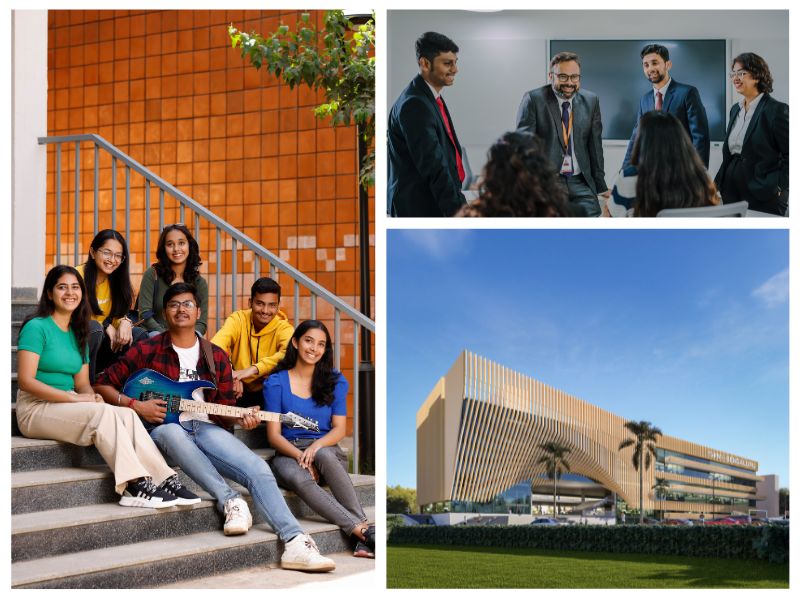TAPMI Bengaluru: Redefining Management Learning for a VUCA World
We live in uncertain times. This familiar phrase, repeated across the globe, has become a cliché — a reflexive response to the turbulence of today’s world. It reflects a collective unease in the face of rapid, far-reaching change. Unprecedented technological advances, shifting economic landscapes, environmental challenges, and evolving social expectations are reshaping the way every sector operates — and the business world is no exception.
Within industry circles, an acronym aptly captures this unpredictability: VUCA — Volatile, Uncertain, Complex, and Ambiguous. The onus, therefore, falls on business and management schools to anticipate the winds of change and prepare their students for what lies ahead. Recognising this responsibility, the T.A. Pai Management Institute (TAPMI), Bengaluru, a constituent unit of the Manipal Academy of Higher Education (MAHE), has pioneered a new approach to management education.
A VUCA world demands much more from business leaders than technical expertise. They must demonstrate resilience, ethical grounding, and the agility to adapt to disruptions driven by artificial intelligence, machine learning, and rapidly shifting consumer expectations. Moreover, today’s generation places heightened emphasis on sustainability and ethical management — on how profits are earned, not merely how much.
“Businesses of the future will not only have to deliver profits but do so sustainably and ethically,” observes Prof. Navaneetha Krishnan S, Incharge-Dean, TAPMI Bengaluru. “Our role as an institution is to ensure students are industry-ready and equipped with the mindset to handle tomorrow’s market realities.”
At TAPMI, ethics and sustainability are not abstract ideals but practical drivers of value. They are embedded in projects and assignments, encouraging students to rethink business models with an eye on resource efficiency, emission reduction, and climate-conscious strategies. Ethical challenges are woven into live tasks, ensuring that by the time students graduate, they have already grappled with dilemmas mirroring real business complexities.
The real world of business cannot be replicated solely through lectures and textbooks. To bridge this gap, TAPMI places strong emphasis on case-based discussions, simulations, and project-driven assignments that compel students to make decisions under real-world conditions. After all, decision-making is not a skill that can be mastered through theory alone — it must be experienced.
This philosophy takes tangible form through initiatives such as the “Clash of Traders”, an experiential project in the BBA (Honours) programme. Here, students set up on-campus stalls to sell products or services — a seemingly simple marketplace exercise that, in reality, serves as a multi-layered learning platform. Accounting comes into play as students track profits and losses, sustainability is tested through sourcing decisions, and marketing strategy is applied in engaging customers. What appears as a student fair is, in truth, a live laboratory for management education.
Experiential learning runs parallel to the cultivation of an entrepreneurial mindset — a vital pillar of modern business education. The goal is not merely to turn students into start-up founders, but to equip them with the ability to think innovatively, identify unmet customer needs, and design value-creating solutions. Regular hackathons, project-based courses, and corporate challenges help students practise adaptive problem-solving and build the versatility required to thrive — whether within established organisations or through entrepreneurial ventures.
The institute’s infrastructure supports these aspirational pedagogical models with specialised laboratories for AI and ML, analytics labs, and supply chain simulation spaces, along with hybrid learning classrooms that connect directly with international partner universities such as Deakin University (Australia) and Southampton University (UK). This ensures that students and executives alike gain global exposure without leaving the Bengaluru campus. Access to Bloomberg terminals and other industry-grade tools ensures that learning is grounded in current market realities rather than abstract theory.
TAPMI also recognises that modern professional life can be immensely demanding, particularly for fresh graduates. The most effective managers combine professional competence with personal wellbeing. To that end, the institute offers personality development modules focused not only on communication and teamwork but also on cultivating calmness, resilience, and emotional balance.
Ultimately, the strength of TAPMI Bengaluru’s model lies in the way it integrates its many facets — project-based learning, entrepreneurial exposure, global hybrid classrooms, cutting-edge infrastructure, ethics-driven pedagogy, and wellness initiatives — into a cohesive framework that mirrors the demands of a dynamic global economy.
As Prof. Krishnan aptly concludes,
“Innovation in management education is not about adding new courses. It is about reimagining how students learn, how they practise leadership, and how they understand the larger purpose of business. That is what we are doing at TAPMI.”
















Add comment